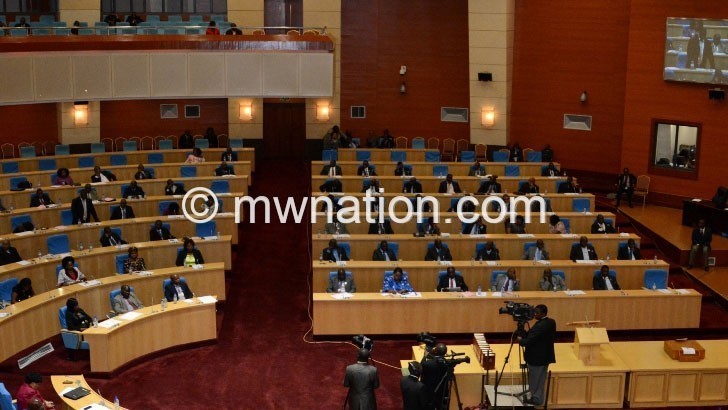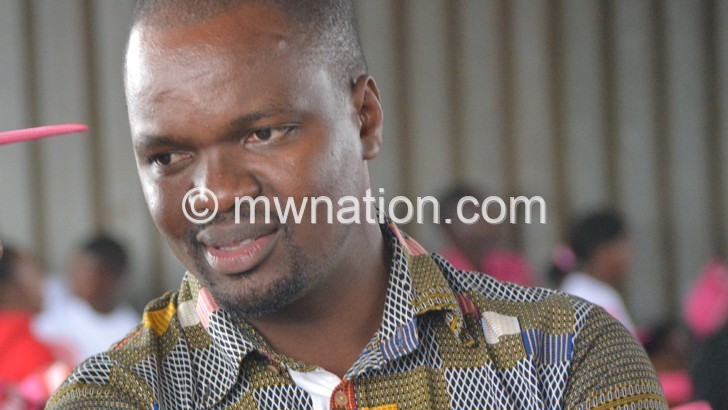House meet uncertain
Forty-seven days to the deadline of holding fresh presidential election as demanded by court, the National Assembly and the President—who make up Parliament—say they are still consulting.
But besides transacting electoral-related matters, which may include setting a new date for the election, the National Assembly also needs to debate and pass the 2020/21 National Budget by June 30.

In an interview yesterday, Speaker Catherine Gotani-Hara said she cannot tell when the House will meet as she is still consulting with the President as the law requires.
Asked if there was some urgency for the House to meet considering its role in the court-ordered elections, Hara said: “I cannot tell you when, but consultations with the President are in progress, that is all I can say.”
Presidential press secretary Mgeme Kalilani confirmed that consultations were in progress between the office of the Speaker and the President.

“Any communication regarding opening of Parliament will be communicated using the usual channel,” he said.
Section 59 (1) of the Constitution provides that for Parliament to meet, the Speaker has to consult the President, a provision the National Assembly itself is uncomfortable with.
According to a 2018 report from Parliament’s Legal Affairs Committee, the provision in Section 59 (1) of the Constitution, which recommends the Speaker to consult the President undermines the autonomy of the Legislature; hence needs to be revisited.
“Parliament may not meet if the President so decides, even when there is a pressing need for a meeting. And, under Section 59 (1) (a) and (b), the President, in consultation with the Speaker, may, respectively, summon an extraordinary meeting of Parliament and prorogue it. A strong President may override any objection the Speaker may have and, if it suits the President, proceed to summon an extraordinary meeting of Parliament, or prorogue it,” reads part of the report based on a motion to operationalise the autonomy of the Legislature.
University of Malawi’s Chancellor College dean of law Sunduzwayo Madise argues that the National Assembly can still convene without the blessing of the President, saying consulting the President does not mean seeking consent.
“The President does not have to say yes or no. This consultation is about informing the President of the meeting, I think it [National Assembly] can meet without the President saying yes,” he said.
Madise said that is why he and others have been pushing for law reform to have the National Assembly meet without consulting the President. Political scientist at the same college Professor Blessings Chinsinga, while agreeing on the need to change the law to have the National Assembly meet without consulting the President, said it has become a tradition that the President has to approve.
But he wondered why it should take days to have the President approve the meeting, considering the urgency of electoral matters.
Given the scenario, one of the people who should be most worried is Minister of Finance, Economic Planning and Development Joseph Mwanamvekha who has six weeks to present the new financial budget.
Asked about his take on the matter yesterday Mwanamvekha said he has finalised consultations and is ready to present the National Budget. He said he is just awaiting communication from the Speaker on when the House will convene.
He said he is aware that there is consultation between the Speaker and the President for Parliament to meet and he hopes it will meet soon so that he can present the budget. He, however, could not be driven to explain what will happen if the National Assembly fails to meet as expected.
The National Assembly was initially scheduled to convene for the budget meeting from May 8 to June 26 2020 but the meeting was called off due to a 21-day lockdown which government announced as part of measures to contain Covid-19.
The lockdown was, however, challenged in court and is yet to be effected.
In March, the National Assembly set May 19 for the fresh presidential election, but the Constitutional Amendment Bill which contained the date for elections failed to get the required two-third majority vote.
The date was later approved through an amendment to the Presidential and Parliamentary Act, which the President did not assent to.
Later, the Malawi Electoral Commission (MEC) set July 2 2020 for the fresh polls, only to change tune that it is not mandated to set elections date, but the National Assembly.
Meanwhile, MEC already opened the official campaign period, which will close 48 hours before the-yet-to-be known polling day.





